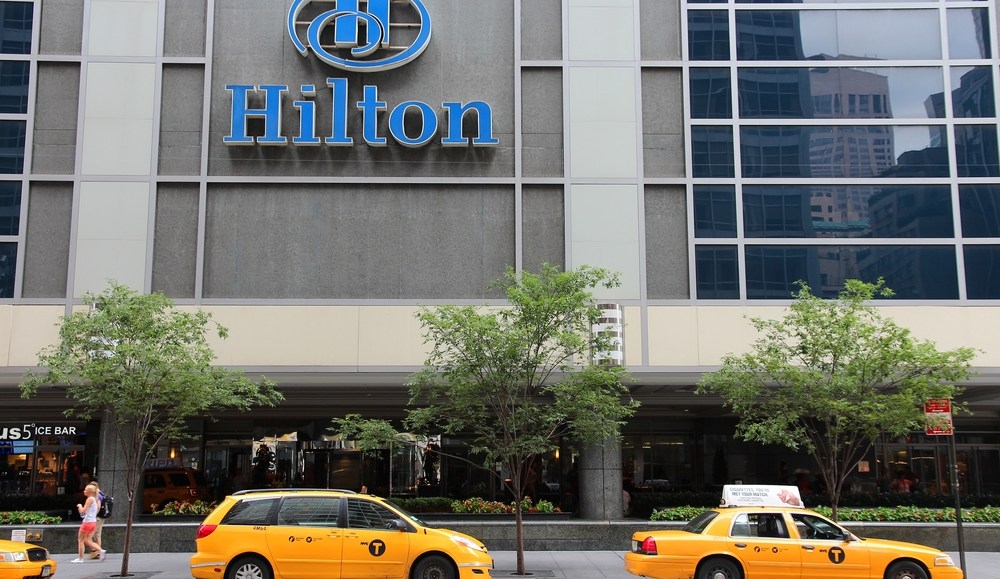Secure your place at the Digiday Media Buying Summit in Nashville, March 2-4

This post was authored by Deanna Zammit, director of the Digiday Content Studio.
The travel and hospitality industry, more than any other, has always had its success predicated on the complete satisfaction of its customers. It’s no surprise, then, that the big players in the hotel business are always looking for new ways to make that experience even more enriching.
Hilton Worldwide has partnered with Digiday to sponsor the Startup Challenge. It’s an opportunity for a new startup to work with the transnational company and see its ideas implemented in a big way. We spoke to Joshua Sloser, vp of digital marketing and eCommerce at Hilton Worldwide about the industry’s history of innovation, the challenge of a large company like Hilton adopting new technology and more.
Read his answers below, then jump over to our competition page to enter your own technology solution.
Is the travel industry as far along as it needs to be in terms of digital innovation?
If you think about it, it’s an industry in general that was doing digital distribution far before a lot of other industries were, thinking about computer reservations and the ability to sell things digitally. That’s been a really long trajectory. In general the industry has done a good job of keeping up, but there is so much infrastructure from our history that we have to bring up to speed.
So what are the the industry’s key challenges in digital?
Particularly in mobile, it requires a tremendous amount of focus for us to make sure that we’re delivering things that are useful and purposeful and great for our guests. You’ve got a tremendous ability to do things in person now at a property that you couldn’t do just a few years ago. It’s a tremendous opportunity, but it also means that we have to work really rapidly.
Where does Hilton turn when it’s looking for digital innovation–in-house, agencies or startups?
All of the above, really. We work with a number of different people. It’s one of the reasons we’re doing this Startup Challenge. There are ideas that come from a lot of different places–technology, agencies, employees. Some of our ideas even come from our guests. On any given day we have tons of different tests running new features that we’ve thought of that we allow our customers to vote on [indirectly].
We get really get usage stats to understand how they’re interacting with us. Is it making the experience better? Are they engaging and booking more with us? That is the true vote from our customers to see how how much they actually find and use and love the things we build.
Hospitality is very much rooted in this idea of one-on-one contact and warmth. Was there any concern that digital would be too cold?
I’d say that there is always that concern but actually the way we think about technology is an enabler to help us be great in our industry. And you could use the technology to do a lot of different things. We choose to use the technology to make a great experience for our guests: a great experience but also a useful experience. We want to give our customers choice and control: If they want to do it themselves, they can, but if they want to engage with our team at the hotel they can do that too. The goal is to arm them with as much information as possible, but then also make sure to have our team on staff to service and delight them.
What are you looking for from start ups entering the challenge?
Thinking about the opportunity through mobile and even through wearables, we’re looking for other companies that are thinking about new technology and ways to apply it in a way that can help our guests. Part of that is the guest’s journey when they are on property. There is so much opportunity as you’re reading into travel and then staying and even as you’re leaving to really do some neat things.
Can you give an example?
I’d love to be able to build something that gives recommendations from people in the area. And that’s great, but you have Yelp for that. So how are you different from a Yelp? And then how does that scale and integrate with the size and scope of Hilton worldwide? We have over 4,000 properties globally. The companies that we partner with have to be nimble and enable us to at some point plug those things together to create a great guest experience.
Image via Shutterstock.
More in Marketing

Thrive Market’s Amina Pasha believes brands that focus on trust will win in an AI-first world
Amina Pasha, CMO at Thrive Market, believes building trust can help brands differentiate themselves.

Despite flight to fame, celeb talent isn’t as sure a bet as CMOs think
Brands are leaning more heavily on celebrity talent in advertising. Marketers see guaranteed wins in working with big names, but there are hidden risks.

With AI backlash building, marketers reconsider their approach
With AI hype giving way to skepticism, advertisers are reassessing how the technology fits into their workflows and brand positioning.





